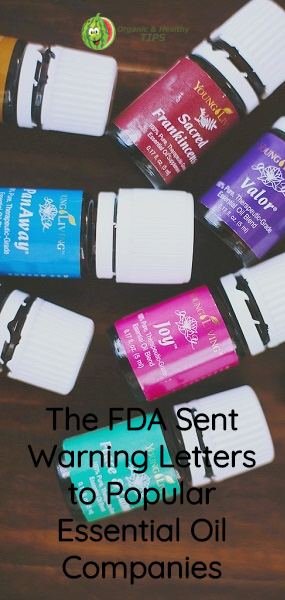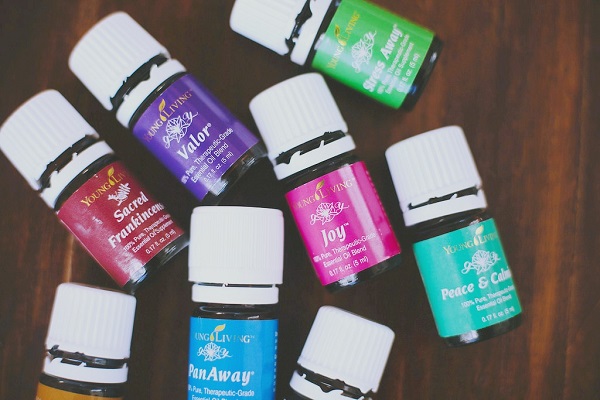Essential oils are often used as a way to relax and add a unique fragrance to home living spaces, but more and more people are discovering their transformational health qualities when used in concentrated, therapeutic forms.
This switch from cosmetic to medicinal use is not surprising.
The market was once saturated with fragrance-only essential oils diluted with sometimes toxic ingredients; oils that usually offered almost no health benefits.
That all changed when companies like Young Living and doTERRA came along, creating essential oil product lines that have therapeutic strength.
When essential oils are made either through distillation, expression, or by creating absolutes (by performing solvent extraction), the plant’s chemical compounds responsible for odor and flavor become concentrated in the oil. These compounds can have a variety of medicinal properties.
The medicinal use of essential oils, however, is not something modern medicine and its governing organizations are interested in.
And that disconnect recently created a serious issue for both Young Living and doTERRA, when the FDA sent a surprising warning letter aimed at stopping the spread of what they deemed as unacceptable health claims.
Young Living and doTERRA essential oils’ recommended use goes far beyond simple fragrances. And since the FDA has virtually no interest in spending money to research natural products, it is much easier to send out warning letters to try to prevent natural remedy options from reaching consumers.
However, it is not the companies’ marketing that got them into trouble as both follow guidelines to notify the consumers that the products and any claims they make are not FDA-approved.
What the FDA warning letter focused on were any potential claims that independent distributors make about these products.
In reality, the companies do not have much control over what their distributors do or say — practically anybody can become one. And it’s no surprise that after having personal medical successes with the oils, these distributors want to tell others — Thieves helped them recover from the flu, or Valor helped with back pain, for example.

Most of the time these people truly want to help others, and they are not aware of the FDA’s overreaching hand (you can scroll down to see the full FDA warning letters that were sent to these companies).
After the FDA’s letters were sent out, both companies responded by saying that they will teach their distributors to use the correct language when advertising their products.
But there’s much more than meets the eye to these highly useful (and highly medicinal when used in the correct way) products, according to research published in the world’s largest library of biomedical research, the U.S. National Library of Medicine (NLM).
Sample Essential Oil Claims the FDA Did Not Like
The follow is a list of example claims made by independent essential oil distributors that the FDA took issue with:
-One website, theoildropper.com, said the follow about rosemary oil: “(R)egular use of rosemary essential oil may…help prevent diseases associated with free radicals, including cancer and heart disease.
-Another website, theoilessentials.com, had the following to say about Young Living Eucalyptus Blue essential oil, which sounds far more innocent considering it doesn’t mention any major diseases and simply describes potential general healing properties of the oil: “Eucalyptus Blue essential oil has antiviral and anti-inflammatory properties…”
-The same site did mention Young Living’s peppermint oil as potentially being useful for major diseases, however: “Peppermint oil has so many more uses…asthma, autism, brain injury…Crohn’s disease…multiple sclerosis, paralysis…” it said according to the FDA’s warning letter (see bottom of the article to view in full).
-The site theoildropper.com also made a surprising claim about possible effects of an oil blend on one of the world’s most feared viruses: “Ebola Virus can not live in the presence of cinnamon bark (this is in Thieves) nor Oregano…”
-Another post (on Pinterest) the FDA took issue with concerned one user’s experience with healing from Lupus, a disease that has confounded mainstream medicine for years now leading some, even celebrities, to turn to harsh treatments like chemotherapy in hopes of finding relief.
-Still another website, http://essentialsurvival.org, mentioned the possible anti-cancer effects of Frankincense, one of the most widely used and potent medicinal essential oils: “(It is) toxic only to cancer cells (unlike chemotherapy that kills healthy cells too)…Causes cancer cells to implode through ‘apoptosis’, the best way for cancer cells to go…Shrinks tumors in preliminary research with animals…”







